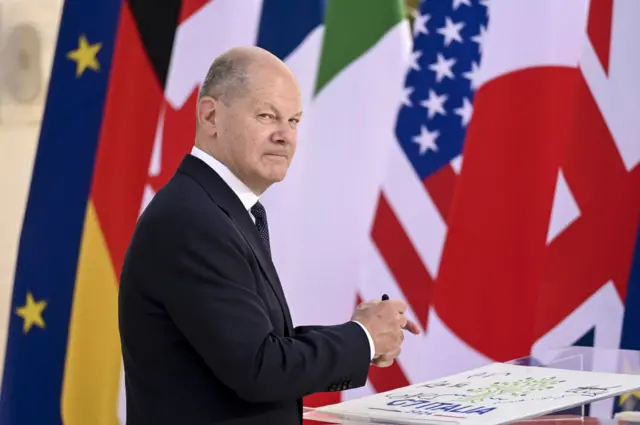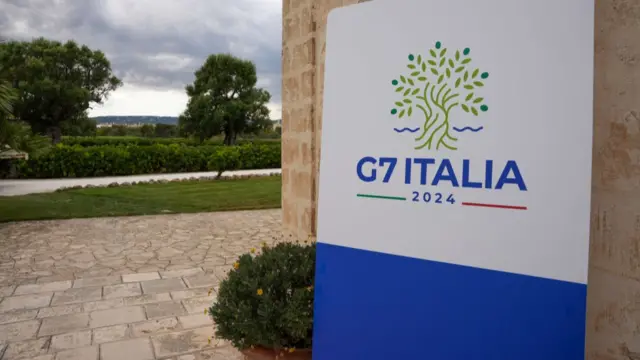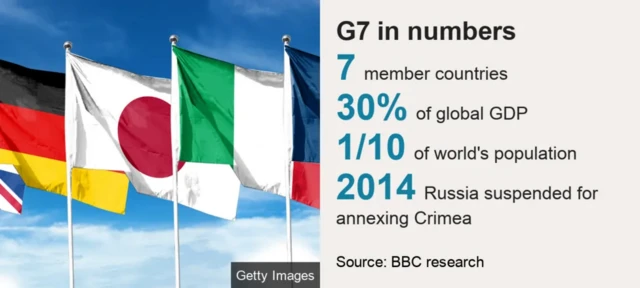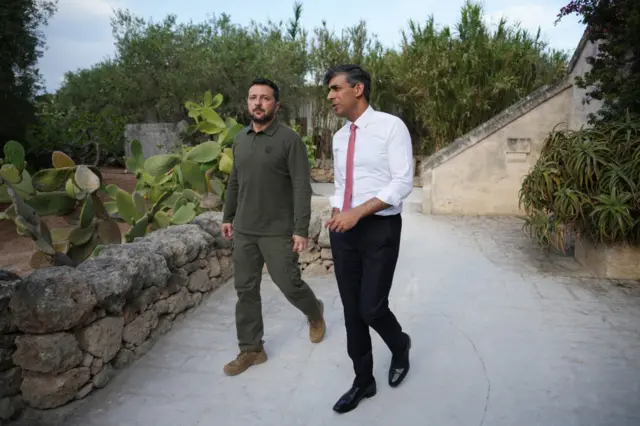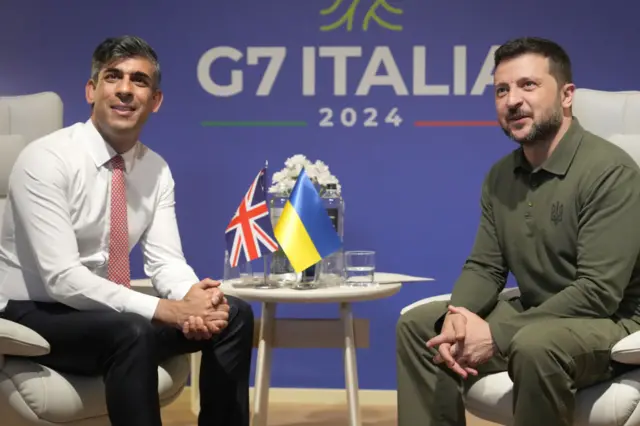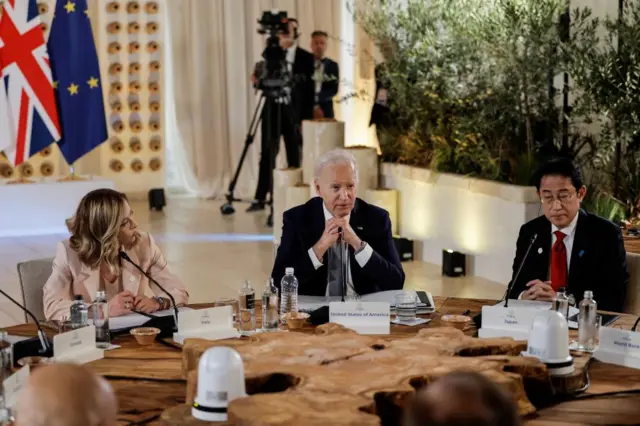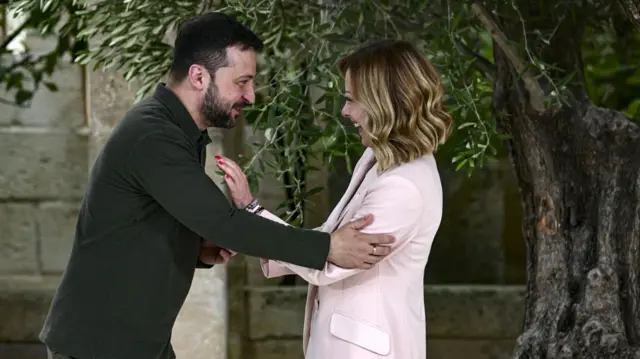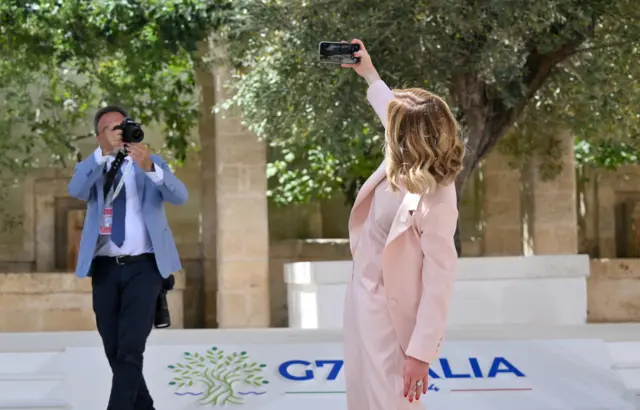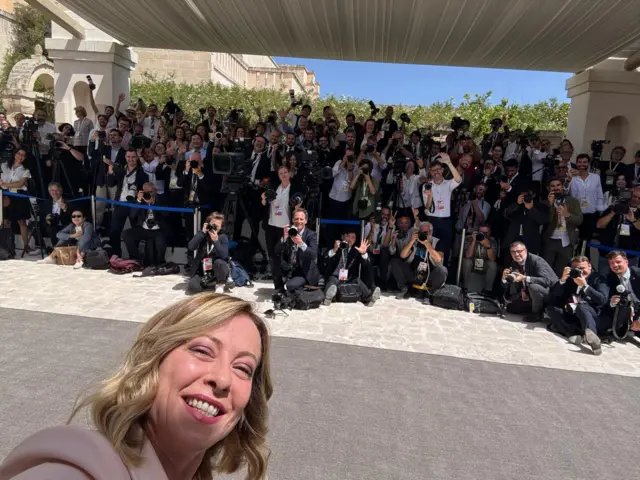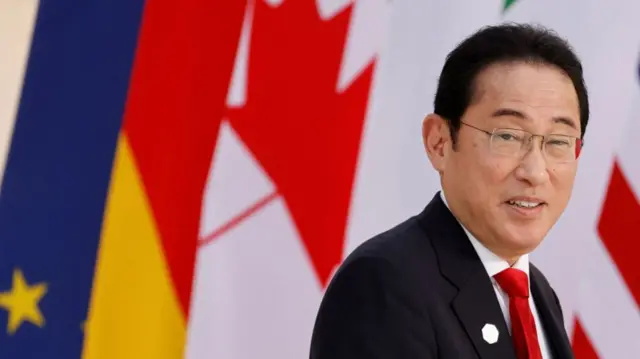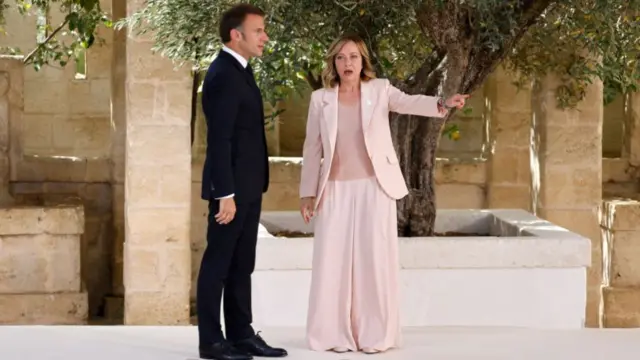How G7 countries have sanctioned Russia and helped Ukrainepublished at 19:10 BST 13 June 2024
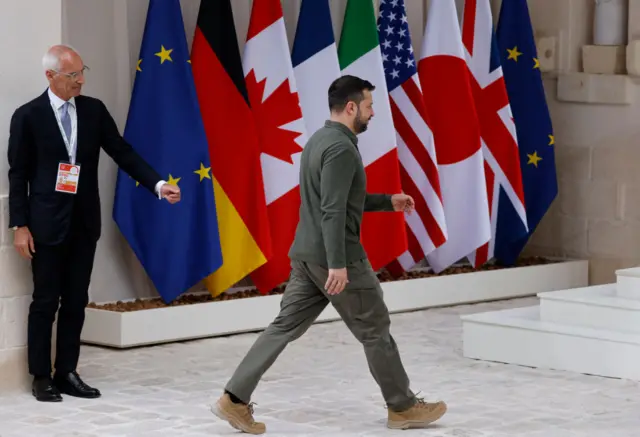 Image source, EPA
Image source, EPAWe're still waiting for Biden and Zelensky to speak, so let's take a look at the background between the G7 and Ukraine.
Since Russia first invaded Ukraine in 2022, the US, UK, EU, Switzerland, Australia, Canada, France and Japan have imposed more than 18,000 sanctions on Russia. Much of the sanctions have been financial.
About $350bn in Russia's foreign currency reserves have been frozen. Other penalites have been sanctioning oligarchs, imposing trade restrictions, and banning flights from Russia.
The G7 itself gave Ukraine $18.4b at the outset of the war in May 2022, with US and European allies pitching in billions to aid the country in its fight against a Russian attack.
Now, the G7 is planning to loan $50bn in funds from Ukraine, raised from interest on frozen these Russian assets.
You can read more about Russia's sanctions here.


